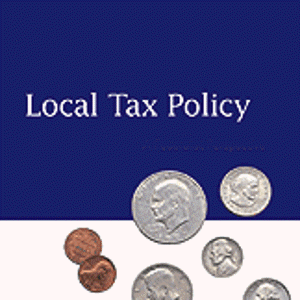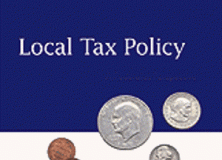 Council has proposed reinstating a Local Service Tax (LST) on employees of businesses located within West Easton. Once known as the, Emergency and Municipal Service Tax, collection of the tax was suspended many years ago when West Easton lost much of it’s industry and business located within the borough. The amount of income when compared to the time required of borough employees to complete forms and filing requirements were not cost effective.
Council has proposed reinstating a Local Service Tax (LST) on employees of businesses located within West Easton. Once known as the, Emergency and Municipal Service Tax, collection of the tax was suspended many years ago when West Easton lost much of it’s industry and business located within the borough. The amount of income when compared to the time required of borough employees to complete forms and filing requirements were not cost effective.
Now that businesses are slowing finding their way to West Easton and their employees are becoming more numerous, West Easton Council feels it’s time to see if instituting a tax is again worth the effort. The issue will be further discussed at a future council meeting.
The proposed tax rate on those employees was recommended at the maximum limit of $52/yr.
More information on the Local Service Tax is below.
Act 7 of 2007 amends the Local Tax Enabling Act, Act 511 of 1965, to make the following major changes to the Emergency and Municipal Service Tax (EMST)
Name Change. The name of the tax is changed to the Local Services Tax (LST).
Effective Date. This is the date when the taxpayer is liable for the new tax rate.
Mandatory Low-Income Exemption. Political subdivisions that levy an LST at a rate that exceeds $10 must exempt from the tax taxpayers whose total earned income and net profits from all sources within the political subdivision is less than $12,000.
Upfront Exemption. Employers are required to stop withholding the LST if an employee provides an exemption certification.
Installment Collection. If the combined rate of a municipal and school LST exceeds $10, it must be assessed and collected in installments based on payroll periods.
Timing. An LST imposed for the first time becomes effective on January 1 of the year following enactment of an ordinance authorizing the tax. The same holds true for an ordinance which changes the tax rate. The Department of Community and Economic Development (DCED) must be notified of the rate by December 1 of the year prior to the effective date for the tax to be shown on the Official Tax Register that is released December 15.
Assessment and Collection. If the LST is levied at a combined rate exceeding $10, the tax must be assessed and collected on a pro-rata basis determined by the number of payroll periods established by an employer for a calendar year. The pro-rata share of the tax assessed on each taxpayer for a payroll period is calculated by dividing the combined rate of the LST by the number of payroll periods established by the employer for the calendar year. When calculating the pro-rata share, employers are required to round down to the nearest one-hundredth of a dollar. For instance, a $52 tax would be collected at $1 per week for taxpayers paid weekly, or at $4.33 per month for taxpayers paid monthly. A $36 tax would be collected at 69 cents a week for taxpayers paid weekly, or at $3 a month for employees that are paid monthly. If the LST is levied at a combined rate of $10 or less, the tax may be collected in a lump sum.
Disclaimer: On January 4, 2016, the owner of WestEastonPA.com began serving on the West Easton Council following an election. Postings and all content found on this website are the opinions of Matthew A. Dees and may not necessarily represent the opinion of the governing body for The Borough of West Easton.






